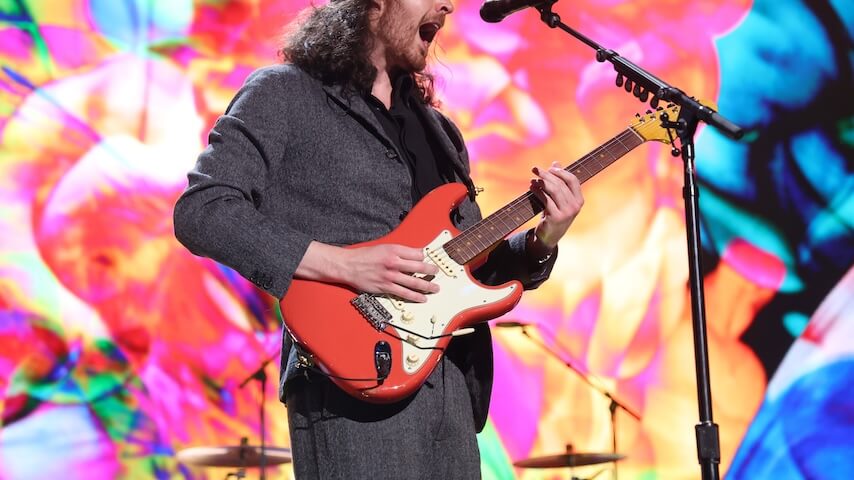Universal Music Group partners with an "ethical A.I." company
A.I. company KLAY is supposedly "Building generative AI music models ethically and fully respectful of copyright."
Photo by: Kevin Mazur/Getty Images
Entertainment megacorporations are simply falling all over themselves to get into bed with artificial intelligence companies. The latest partnership is between Universal Music Group and a new entity called KLAY, a self-proclaimed “ethical A.I. music company.” The partnership is supposedly a “pioneering commercial ethical foundational model for AI generated music that works in collaboration with the music industry and its creators.”
According to a press release, KLAY is working on a Large Music Model “that will revolutionize the way people think about music, presenting a new, intuitive music experience.” What is so ethical about this technology, you might ask? “Building generative AI music models ethically and fully respectful of copyright, as well as name and likeness rights, will dramatically lessen the threat to human creators and stand the greatest opportunity to be transformational, creating significant new avenues for creativity and future monetization of copyrights,” the release explains. The company is “developing a global ecosystem to host AI-driven experiences and content, including accurate attribution, and will not compete with artists’ catalogs in traditional music services.”
Like many of these “innovative” A.I. announcements, KLAY’s promises are at this stage mostly vague word salad. KLAY suggests its tech will be good for “powering new products and experiences.” The company’s founder and CEO Ary Attie says in a statement that “KLAY’s obsession is not just to showcase its research innovation but to make it invisible and mission-critical to people’s daily lives.” You know how people are always talking about what’s mission-critical to their daily lives?
“Ethical” A.I. is a relative concept. One could argue that the outsize energy demands of artificial intelligence (which will “run largely on fossil fuels” in this decade, the New York Times reported earlier this year) make it an inherently unethical endeavor. On the other hand, as generative A.I. gains a reputation (an arguably well-deserved one) for being a plagiarism machine, respecting copyright and likeness rights is certainly an important protection. UMG cited concerns over “protecting human artists from the harmful effects of A.I.” when it picked a fight with TikTok in early 2024; the company now says it “has always endeavored to lead the music industry in driving innovation, embracing new technologies and supporting entrepreneurship while protecting human artistry.”
Yet partnering with an A.I. company to protect human artistry might sound like an oxymoron to the actual human artists under UMG’s banner, like Patrick Stump of Fall Out Boy who said last year that art is “stuff we shouldn’t be automating.” (“I probably won’t get to score movies for very long because they’ll have technology that does that,” he mused.) UMG artist Nick Cave has said it’s “insulting” that “there are smart people out there that actually think the artistic act is so mundane that it can be replicated by a machine,” adding that “ChatGPT should just fuck off and leave songwriting alone.” UMG artist Hozier said A.I. “can’t create something based on a human experience, so I don’t know if it meets the definition of art,” and professed a willingness to join a music industry strike against the technology, should such a thing become necessary. Well, artists with UMG contracts might want to look into what the company’s A.I. partnership really means past all the word salad, because “necessary” may be just around the corner.